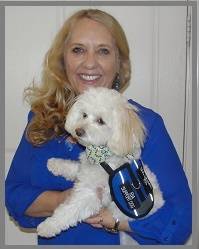5 benefits of Training a Psychiatric Service Animal
Summary of todays Podcast:
1. Changes for psychiatric service dogs and airline travel
- New rules for Airlines travel with a Psychiatric Service Dog (PSD)
- Who and How to qualify for a PSD
- Service Dog Training
- Ways Psychiatric Service dog help with Panic Attacks and PTSD and depression
Question of the day is: What is the only question that a person can ask someone to determine if they have a mental health service dog?
I was so relieved when I found out about having my cute little furry Emotional support Animal (ESA) fly with me by federal laws for airlines. I could take my dog with me and have him on my lap, if I had a letter from my therapist stating I need my dog to fly with me because I have anxiety, I can take him with me. That is no longer the case now. This is a big loss for many to be able to take your furry friend with you.
The 2 laws are for airline travel and housing and they have been around for a long time:
- For Housing-The Fair Housing Act.1973- FHA was enacted 47 years ago for people with a disability, physical, or emotional to have their animal with them in housing and to not be discriminated against. There are no changes to this law.
- For Air Travel- the Air Carriers Access Act (ACAA) 1986-enacted 3 years ago. Enables you to bring an animal, mostly dog or cat on the plane with you. To Be on your lap the entire flight, or at your feet outside of a carrier.
12-2-20 the Department of Transportation has changed the regulations. No more ESAs on planes, they are considered pets. But date when this will take effect.
Service Dogs for Panic Attacks
The new Classification is a Psychiatric Service Dog (PSD). Up to 2 dogs, but only dogs, no other kind of animals. They must meet more stringent requirements and a DOT form is needed to the completed attesting by penalty of a felony that your dog is “trained” to perform a task that helps you with your psychological symptoms.
The person can train the dog themselves or have a professional train them or the animal could have intuitively trained themselves to recognize and respond and alleviate the client’s psychological symptoms.
For example, Training for a Psychiatric Service Dog for Panic attacks, the dog might notice when you are starting to get anxious, even before the you do. The dog must respond, for instance, comes over and licks at you, or puts him head in your lap and this alerts you to your rising anxiety before it escalates to a panic attack and this calms you down, this would be an example of being trained to perform a task.
Or training for a Mental Health Service Dogs for depression could be that the dog lick or paws at you to wake you up, since one of the symptoms of depression can be sleeping to much and you dog comes and gets you out of bed, that is trained to do a task.
You Can Qualify For Psychiatric Support Dog Easily
The examples could go on and on for all the different ways a dog could be defined as a PSD.
Here are more examples:
- Helps Calms you from having a more severe panic attack
- Takes you out of an overwhelming situation from PTSD triggers
- Calms you in crowds by being a barrier between you and others
- Brings you back from dissociative state
- Gets between you and others to provide space
- Nudges you to keep moving in social situations or crowds
- Helps to get you out of bed, when depressed or helps you overwhelm state
- Licks your face to calm or bring you back to reality
- Lays on you when having panic attack to apply pressure
- Comes to calm an Autistic person before an episode worsens
5 benefits of having a certified PSD Training dog is that they can go with you into
- Public places
- Stores, Hotels
- Restaurants
- Fly in a plane with you in the cabin, within your space with no fees
- Be in no pet house, without weight or breed restrictions or pet rents.
If you believe your animal helps you with one of the above. Then you are prequalified for next step to get a certified PSD.
If you want to get a certified PSD by a mental Health professional, then an evaluation of your symptoms and need for one is the next step. For Housing this may be required. Many clients want the certification by me as a Licensed Mental Health Professional with my specialty of certifying for an ESA or a PSD to receive an Official letter or a Photo ID certifying that they meet the law. This way clients with anxiety are relieved to have the paperwork and not be questioned.
By the law the only question that can be asked is How is your dog trained to help you with a task? Or what task is your dog trained to help you with. On our PSD letters and ID’s that wording is written directly on it, so that there is not question what can be asked.
If you are interested in more information or if you have questions you are welcome to call us at 760-485-6785 or go to ESApros.com












